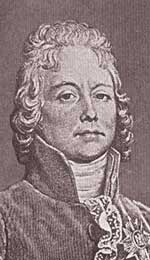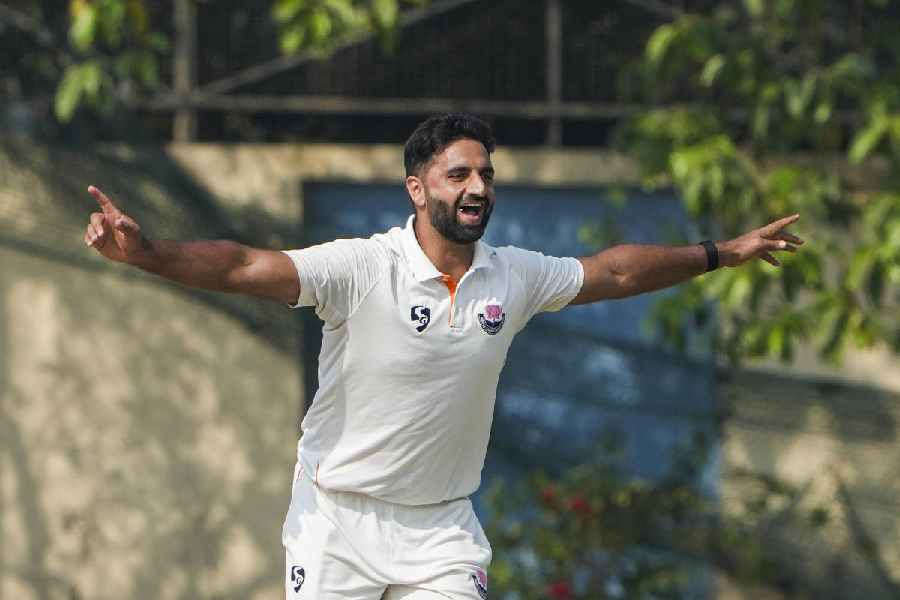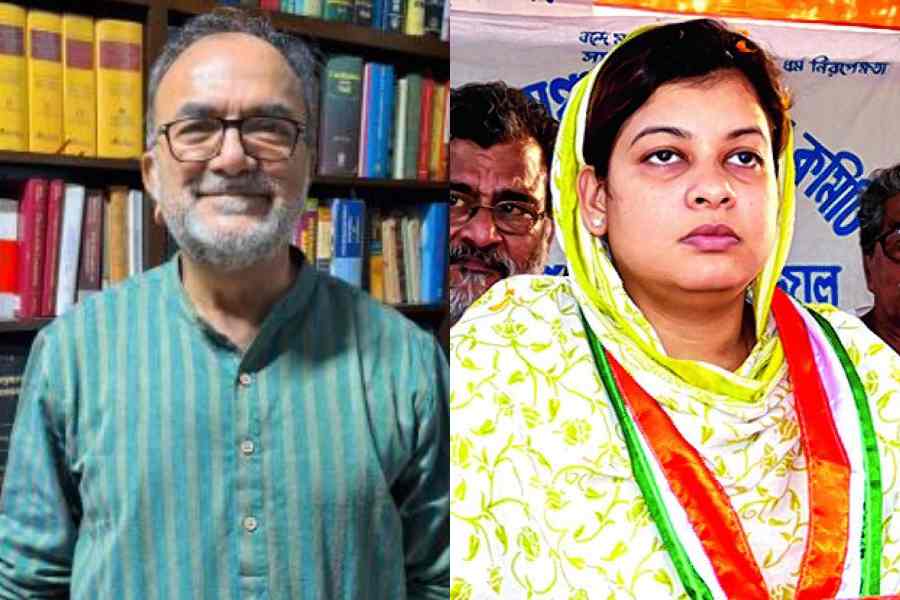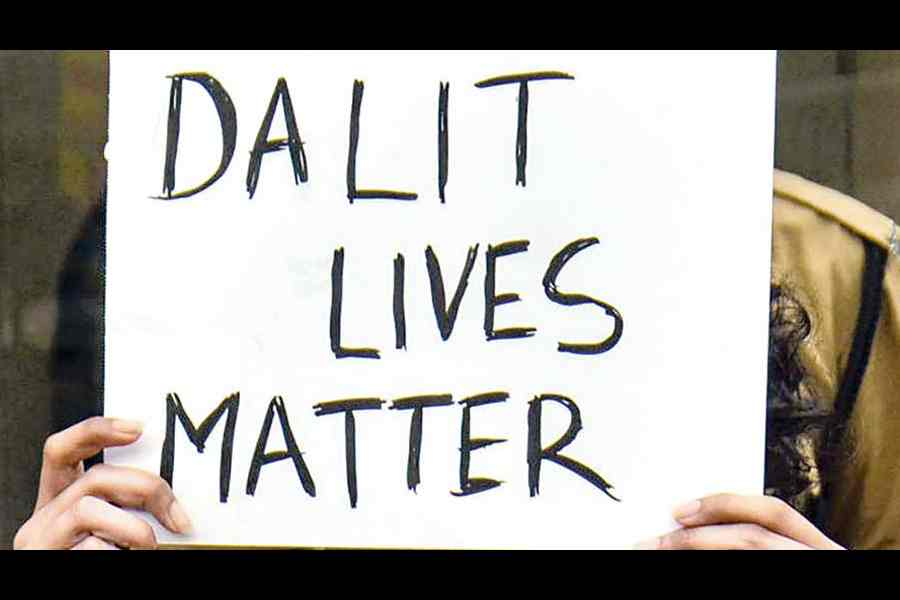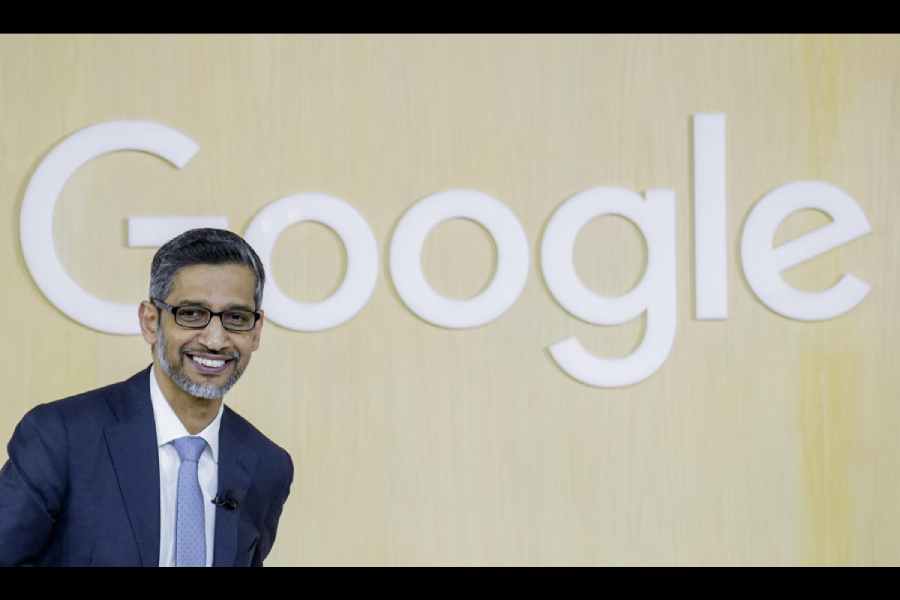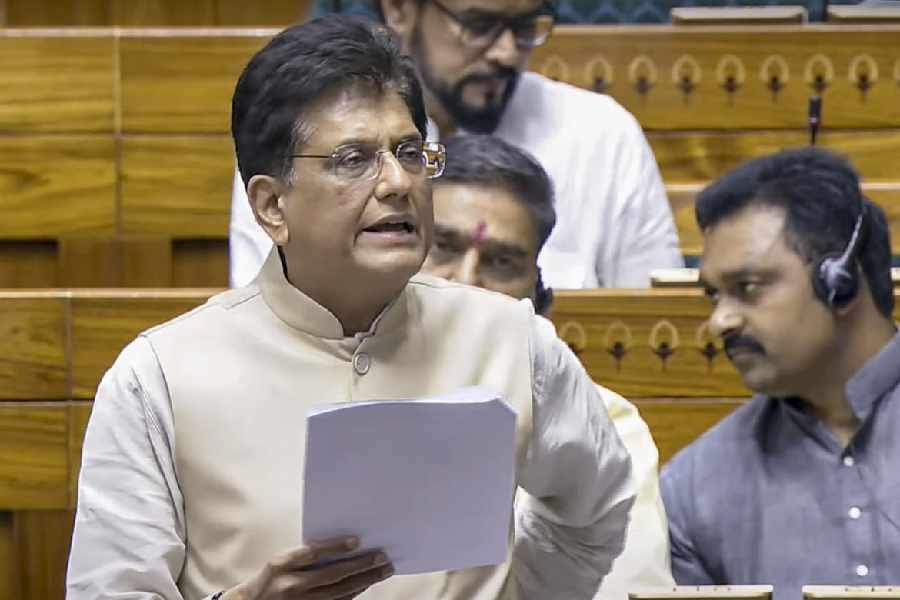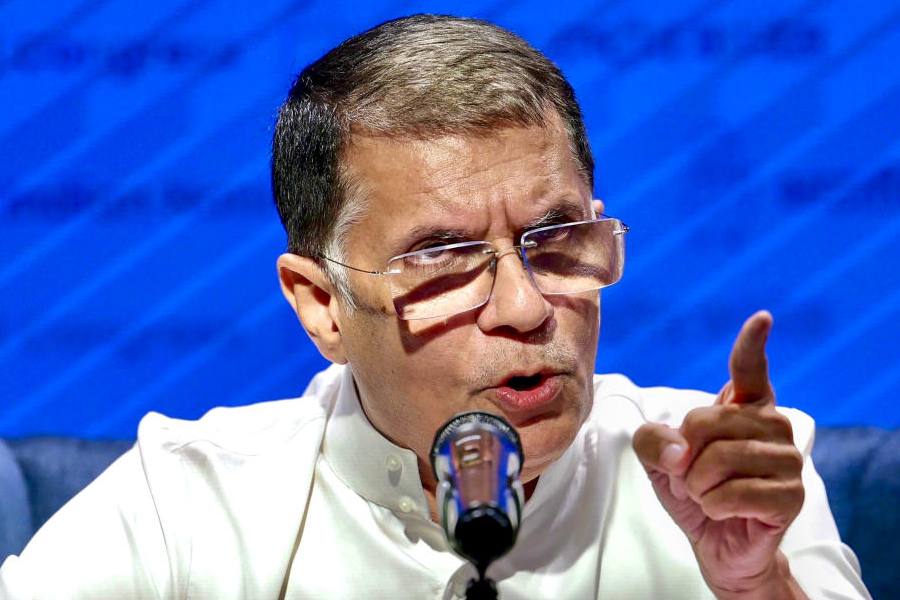|
|
| P.V. Narasimha Rao (1921-2004) |
P.V. Narasimha Rao made a revealing complaint and an intriguing request at our last meeting two years ago. Reiterating that he was the only Congress prime minister ?not of the family? to complete a full term, he added bitterly, ?And I am still paying for it!? The request was to send him a set of critical questions about the demolition of the Babri Masjid. ?Don?t spare me,? he urged. ?Be as harsh as you can.?
As Zhou Enlai said of the French Revolution, it?s far too early to judge a man of his complexity. Only someone who interacted with him intimately over a period of time should attempt that task. The only journalist whose name comes to mind ? possibly because Narasimha Rao himself mentioned him ? is Nikhil Chakravarti, and he joined the majority, as the ancient Greeks put it, even earlier. I glimpsed only a few select facets of the man I imagine sitting hunched and lost in thought in the shabby gloom of 9 Motilal Marg.
Head sunk in his shoulders, he reminded me of nothing so much as a small turtle. Sometimes his body shook with soundless laughter. His dry wit was that of a man with little self-importance. When Manmohan Singh, then finance minister, complained that people were accusing him of selling out to foreign interests, Narasimha Rao retorted, ?Who would want to buy this country anyway?? ?When in doubt, pout,? mocked officials. Some of their cracks were unprintable. The joke was on them. ?When I don?t make a decision,? Narasimha Rao explained, ?it?s not that I don?t think about it. I think about it and make a decision not to make a decision.? Some called him the best external affairs minister India has ever had, better than Jawaharlal Nehru. ?I?m rooting for Rao, the secular prime minister, who is more likely to move toward free markets than Vajpayee, his leading opponent,? William Safire wrote in the New York Times before the 1996 election. Lee Kuan Yew called him India?s Deng Xiaoping, then chortled with delight when, Safire notwithstanding, the Congress was defeated. Narasimha Rao had given grave offence by declaring publicly under Lee?s own auspices in Singapore that he fervently believed that the answer to the problems of democracy was more ? not less ? democracy.
Thursday?s demise meant putting off King Gyanendra. Relations with Nepal became far more tense when Narasimha Rao was responsible for foreign policy. He flew to Kathmandu to avert a crisis that would have forced India to block some of the grace and favour transit routes allowed to the Himalayan kingdom, and bluntly told the ill-fated Birendra, ?I will treat Nepal as a sovereign country providing Your Majesty does not treat me as a subject!?
After describing the minutiae of Indo-Nepalese relations at great length, Narasimha Rao referred me to a particular official in his ministry who was strong, reliable and ?from the south?. Apparently, the previous (north Indian) incumbent was ?always pleading for small countries!? That was a view with which I had particular sympathy. Narasimha Rao read what I wrote with surprised disapproval, and wondered to two senior officials (both south Indian!) why I ventilated the opposite point of view after he had spent more than an hour ?explaining the position? to me.
It made no difference to our relations. Politicians and journalists are usually locked in a mutually self- serving union. Here, there were no expectations. Narasimha Rao knew when to subordinate expediency and amour-propre to a higher cause. When Inder Kumar Gujral became prime minister, he noted that Atal Bihari Vajpayee?s dyed-in-saffron adviser, Brajesh Mishra, had been a member of every delegation that Narasimha Rao sent to the United Nations. Gujral tried to follow that example of recognizing merit irrespective of label by including Vajpayee and Mishra in all his official delegations. But the Bharatiya Janata Party in power at once scuttled Narasimha Rao?s bipartisan precedent.
Even the economic liberalization that posterity will regard as Narasimha Rao?s greatest contribution to India displayed enlightened astuteness. Fearing alarmist newspaper headlines, a parliamentary hue and cry and resistance in the ranks, he did not bring up Manmohan Singh?s package of far-reaching proposals in cabinet. After all, the Congress back benches had forced Rajiv Gandhi to eat humble pie over far more modest reforms. Instead, the prime minister and his finance minister discussed their plans with Lal Krishna Advani who gave them the BJP?s blessings. Not for nothing did Narasimha Rao call himself ?a prime minister of consensus?.
He was a pragmatist who recognized that India on the verge of bankruptcy needed American support and capital rather than a committed free marketeer. There ?would be blood on the streets,? he warned grimly, if foreign funds did not free domestic resources for social welfare. I asked if the reforms did not violate ?the Nehru line? to which he paid obeisance. ?Manu the lawgiver gave the law,? he replied cryptically. ?It is up to each Brahmin to interpret it.?
Selecting Manmohan Singh was, perhaps, his greatest coup. Apparently, the 61-year-old economist was not his first choice. That was I.G. Patel, former director of the London School of Economics. Manmohan Singh, too, had doubts, and sought formal assurance of sustained political support for unpalatable economic measures. The relationship was not without strain, especially when the prime minister found it politically necessary to make promises about subsidies. But Narasimha Rao also knew that his finance minister enjoyed the confidence of global financiers. ?When he gets into political trouble, I bail him out,? he told businessmen in Washington, ?and when I get into economic trouble, he bails me out.? Both were too conscious of their responsibilities to the nation to allow the partnership to founder.
Narasimha Rao was full of surprises. Visiting Thailand at the height of the Cold War, when India was additionally out of favour for its stand on Cambodia, he struck a rapport with King Bhumibol Adulyadej, who has never been especially fond of the country with which he claims a cultural lineage as Rama IX of Ayuthya. The two men compared the Thai and Indian scripts and the challenge of introducing them to the computer keyboard. Aged eighty, he began to play the piano to exercise arthritic fingers. When a former president of India broadcast that fact on his bungalow gatepost, Narasimha Rao said that being ?a lover of obscurity? he had never even had a visiting card. He sounded maliciously pleased when I was cunningly eased out of a job. ?Now that could never happen in the public sector!? he exclaimed, wagging an admonitory finger. But I could never get him to talk about the suspicion and speculation surrounding India?s nuclear programme. ?One takes oaths and signs pledges,? he would say, gently warding me off.
As far as I am aware, no one accused him of abusing power to accumulate personal wealth. The charges of unethical politics are, however, only too plausible. He describes the deterioration of ideals in his autobiographical novel, The Insider. ?A deep rot started in the political process, from which the country never recovered,? he writes. Though grateful for the gift, I did not find the book gripping reading. Therefore, I have no idea whether Anand, the central figure, matches Narasimha Rao in every detail. But the setting is true to life. The death of ideology, booth-capturing, middlemen ?earning tidy amounts for their ability to organise voters,? caste combinations and pandering to particular lobbies reflect the world?s largest democracy. Perhaps that is why the Babri Masjid affair continued to haunt him more than a decade later. I do not know why he sought criticism from me and others. It could be that he was collecting material for a second autobiographical volume or that he needed outsiders? questions to clear his own mind. I do know that I regret being too lazy to get round to honouring a lonely old man?s request.

